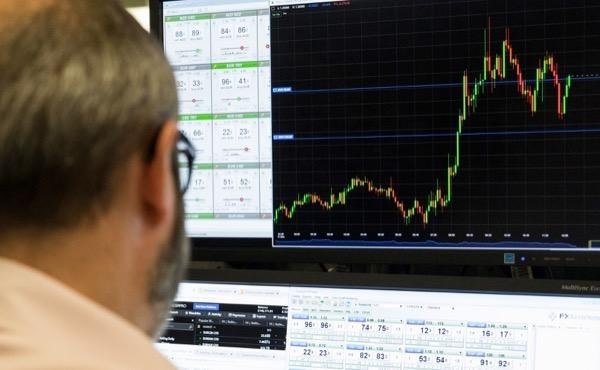How are Forex spreads calculated in the UK?

Nearly all online Forex trading spreads are calculated using the same formula, no matter where you live. There may be slight variations to this calculation depending on the country. In this article, we’ll look at how Forex spreads are calculated in the UK and explore factors that can affect these spreads. So, if you’re wondering how your broker calculates their spreads, read on.
How are Forex spreads calculated in the UK?
Forex spreads are calculated in pips, and a pip is the smallest unit of price movement for a currency pair. Most currency pairs are quoted to four decimal places, so a move from 1.3500 to 1.3505 would be five pips.
The spread is the difference between the bid cost and the asking price. The bid price is the cost you can sell a currency pair, and the asking price is the cost at which you can buy a currency pair. For example, if the bid price for GBP/USD is 1.3500 and the asking price is 1.3505, then the spread would be five pips.
Spreads are typically quoted in terms of pips, but they can also be quoted in terms of points. A point is simply a unit of measurement, and in the Forex market, a point is usually equal to 0.0001. So, if the spread for GBP/USD is quoted as 10 points, it would equal ten pips.
Factors that affect Forex spreads
Many factors can affect the size of Forex spreads.
The most crucial factor is liquidity. The more liquid a currency pair is, the narrower the spread. It is because there are more buyers and sellers in the market, so there’s less need for a broker to offer a wider spread to make a profit.
Another critical factor is volatility. Highly volatile currency pairs tend to have wider spreads than less volatile pairs, and this is because there’s more risk involved for the broker. When currencies are volatile, they can move very quickly, and this can result in significant losses for a broker.
Another factor that can affect spreads is the time of day. Spreads tend to be narrower during peak trading hours when there’s more activity in the market. Finally, some brokers may offer commission-free trading. In this case, the broker makes their money from the spread instead of charging a commission.
Why do spreads vary between different brokers?
Different brokers will quote different spreads for the same currency pair, and this is because each broker has its way of calculating spreads.
Some brokers add a mark-up to the interbank spread, while others may charge a commission. And some brokers may offer a combination of the two. It’s essential to compare spreads between different brokers before you open an account, which will help you find the best deal possible.
How to calculate the value of a pip
The value of a pip varies depending on the currency pair you’re trading.
To calculate the value of a pip in GBP/USD, you need to multiply the size of the pip by the exchange rate. For example, if the pip is worth $10 and the exchange rate is 1.3500, the value of the pip in GBP would be £7.40. (10/1.3500) * 7.40 = £5.48.
How can you minimise the cost of trading Forex?
There are many ways that you can minimise the cost of trading Forex.
The first is to make sure that you choose a broker that offers low spreads, which will help keep your costs down.
Another way to minimise the cost of trading is to trade with a commission-free broker. In this case, the only cost you’ll incur is the spread.
Finally, you can try to minimise your losses by using stop-loss orders. A stop-loss order is an order that automatically closes your position at a certain level of loss, and this can help to limit your losses and protect your capital.
Are there any benefits to paying a higher spread?
There can be some benefits to paying a higher spread.
One benefit is that you may get access to better prices. It is because brokers that charge higher spreads typically have more money to spend on research and technology, which means they can offer their clients better prices.
Another benefit of paying a higher spread is that you may get faster execution. The broker will have more incentive to execute your order quickly, as they’re making more money from it. Finally, some brokers may offer perks or bonuses for accounts that pay higher spreads. These can include things like free signals or trading platforms.















